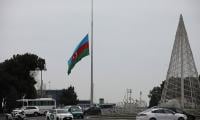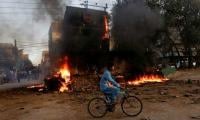In Pakistan, women make up a majority of the agricultural workforce, but their contribution remains unacknowledged in policy and public debates. Women agricultural workers undertake difficult physical labour, working long hours in unsafe conditions and are paid lower wages compared to their male counterparts.
They also have fewer opportunities than men, with unequal access to resources such as land, technologies and extension services.
It was the main crux of a group discussion which the National Commission on the Status of Women (NCSW) and Collective for Social Science Research (CSSR) hosted to share the findings of their studies on rural women and explore possible ways of advancing the rights of women agricultural workers at a local hotel.
A number of women parliamentarians, researchers, practitioners, opinion-makers and members of community organisations attended the discussion, mainly focusing on how policy and legislative reform can improve the rights and well-being of women agricultural workers.
Presenting the findings from the Status of Rural Women in Pakistan Report 2018, Dr Yasmeen Zaidi, director of the Centre of Gender and Policy Studies (CGaPS), said that approximately 53 per cent of women who worked were unpaid and 60 per cent of them belonged to rural areas.
Haris Gazdar, Pakistan’s lead researcher for Leveraging Agriculture for Nutrition in South Asia (LANSA) and director of CSSR, reported findings from the Women’s Work in Agriculture and Nutrition (WWN) Survey 2015-16. The survey found that 46 per cent of children between 0-3 months are stunted in rural Sindh.
Gazdar said that this indicates that the battle against malnutrition is already lost when the child is born, and that women’s health, work and well-being become central to child nutrition. The report also found that lack of education, household poverty and food insecurity are strongly associated with women’s participation in agricultural work.
Participants then discussed how the rights and well-being of women agricultural workers could be prioritised in legislation and policy.
Nafisa Shah, a Pakistan Peoples Party MNA, reiterated her commitment to represent women at the national level. She vowed to work jointly with other female parliamentarians to take the issue of recognition of women agricultural workers to the assembly floor.
She said that labour policies and laws needed to apply to female agricultural workers. She also emphasised the need for forming women cooperatives at the state level for greater financial inclusion and political representation of women.
She mentioned the need for strong policy instruments and political will to ensure landownership and land titles for women.
Mehnaz Akbar, a Pakistan Muslim League-Nawaz’s MNA, proposed strengthening the Women’s Parliamentary Caucus so that problems of women agricultural workers (and their children) are discussed as a priority at the provincial and national levels. She also discussed the need for sensitizing local governments so they were better able to address issues faced by women agricultural workers.
Khawar Mumtaz, chairperson of the NCSW, discussed the need to redefine women’s work so all provinces could move towards counting and recognizing it at an official level.
All participants agreed that there should be a forum or task force dedicated to taking these matters forward.
Tanzeela Qambrani, another PPP MPA from District Badin, said that actions needed to be taken to ensure that women could access and use credit, especially microfinance.
Former Prime Minister Benazir Bhutto at an election rally in Rawalpindi shortly before she was killed, December 27,...
The leader of the opposition in the Karachi Metropolitan Corporation City Council, Saifuddin Advocate of the...
The representational image shows school children learning at a private school in Pakistan. — AFP/FileThe Sindh...
The Sindh High Court building in Karachi. — SHC website/FileThe Sindh High Court has granted bail to a man in a...
Members of Christian community offer Christmas prayers at a church. — APP/File Christians in Karachi celebrated...
A representational image showing ambulances parked at an incident site. — AFP/FileA police official and another...







